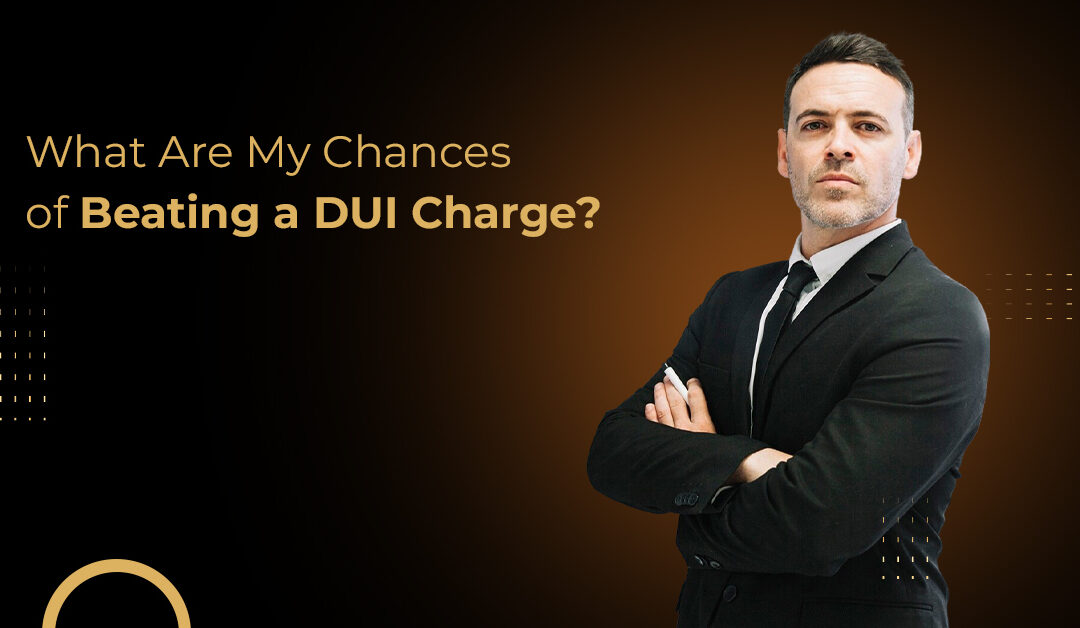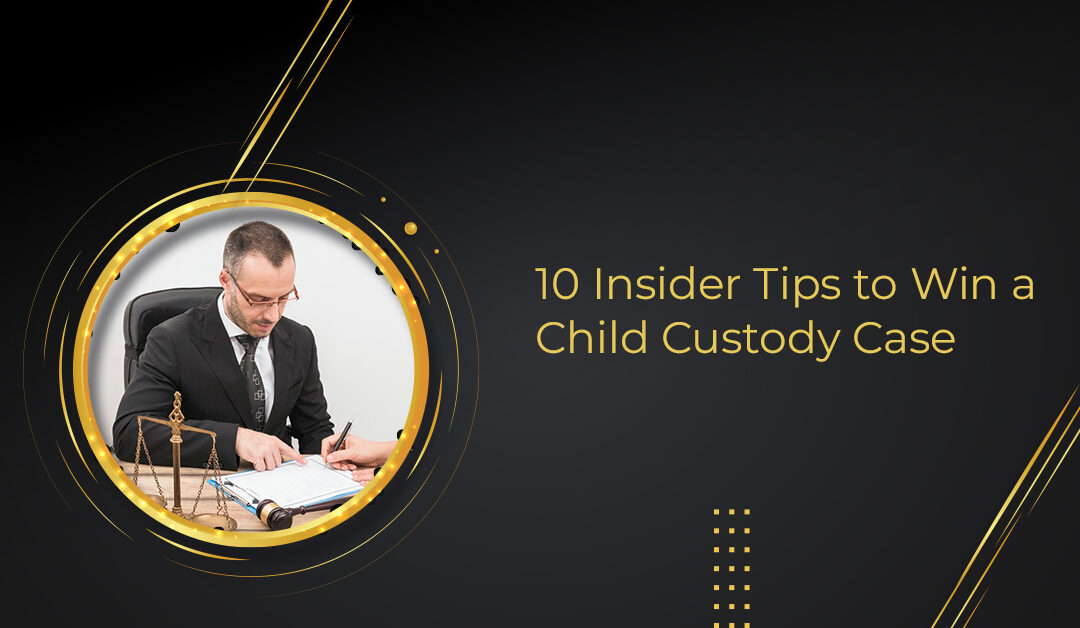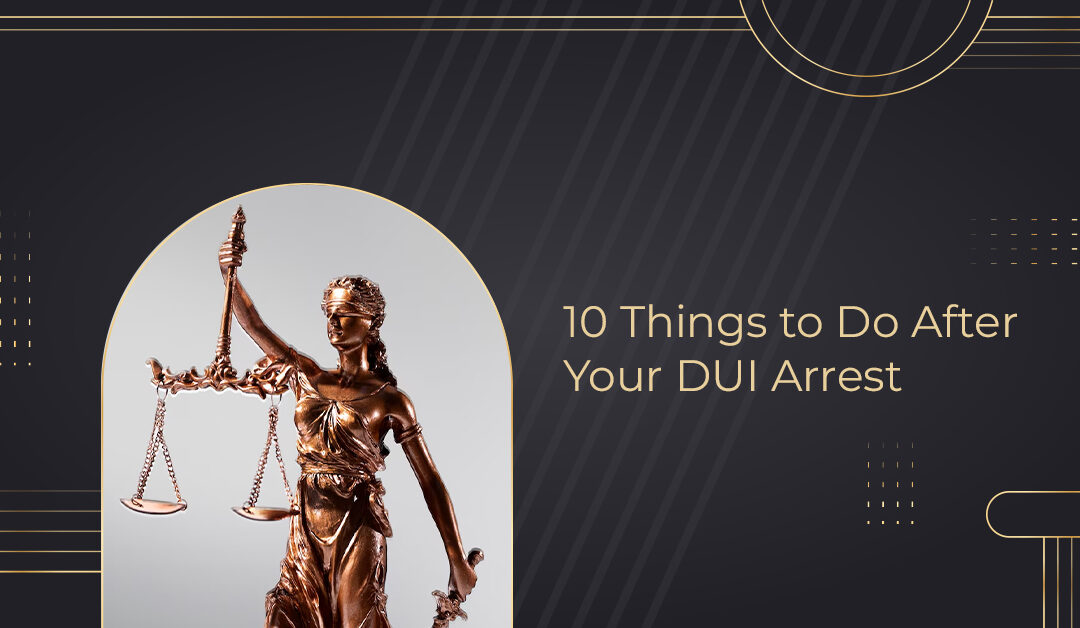
by gary | May 12, 2025 | Blog, DUI
If you have been arrested for a DUI, you are likely wondering about the likelihood of having your charges reduced or your case dropped. If you are a first-time offender, you are probably wondering what are the chances of the case getting dismissed or even having the charges reduced. In this article, we will look at the chances of getting DUI dropped or reduced to reckless driving.
What Are the Odds of Getting DUI Dropped?
The chances of getting DUI dropped in Arizona can vary significantly depending on several factors. Usually, a dismissal of the case can either come from the court or from the office of the district attorney. However, there must be a reason to dismiss. Depending on the nature of your case, some of the reasons you may give to increase the odds of getting DUI dropped include:
- The strength of evidence the arresting officer has against you
- The circumstances surrounding your DUI arrest
- Your blood alcohol content (BAC) at the time of arrest
- Quality of your legal representation
- Your prior criminal record
While there are chances that your DUI can be dropped, the odds are still very low. In most cases, you are more likely to get a reduction of the charges than a complete dismissal. Nonetheless, the odds of getting your DUI charges dropped are still worth fighting for, especially if this is your first offence. For instance, if there were anomalies or errors in your DUI case, then the chances of getting it dropped are higher. It could be an error in the breath test results, lost evidence, or even the initial stop of the vehicle by the police officer being done illegally.
How Often Are DUI Charges Reduced
Your chances of getting DUI reduced to reckless driving are slightly higher than having them completely dropped. In plea bargaining, the prosecution may be open to negotiating the case. This can result in a reduction of the DUI charges or penalty. However, you will need an experienced DUI attorney to negotiate on your behalf to reach a favorable outcome.
Although the exact percentage of DUI charges that get reduced tends to vary greatly, most cases result in some form of reduction or dismissal. Up to 40% of DUI cases are reduced to lesser charges, with a few of them being dismissed entirely. Since most DUI cases tend to be lengthy, the outcomes are also influenced by many factors.
Can I Get My First DUI Dismissed?
If you are a first-time offender, your chances of getting DUI dropped are higher than repeat offenders. However, every DUI case is taken seriously, and the dismissal is never guaranteed. The outcome of your case will mostly depend on the evidence presented against you and the quality of your DUI lawyer. Some of the strategies that may increase the chances of getting DUI dropped in Arizona include:
- Challenging the legality of the traffic stop
- Disputing the reliability of blood test results or the accuracy of the breathalyzer
- Questioning the accuracy of field sobriety tests
- Arguing that your rights were violated during the arrest
- Identifying procedural errors during the arrest or booking
- Presenting evidence of a health condition that could have affected test results
Although the odds of your DUI charges getting dropped are higher for first-time than repeat offenders, you will need to work with an experienced DUI attorney. They will examine all the details of your case and build a strong defense strategy for the best possible outcome.
The District Attorney’s Office will usually elect to dismiss a DUI case in Arizona due to insufficiency of the evidence or in the interests of justice. In other words, they will often not dismiss a case unless they believe that they cannot prove it at trial. For instance, your blood tests may come back from the laboratory and show that it is below 0.08% BAC. Based on the other evidence gathered for your case, the provability of the case, and your prior record, they may elect to dismiss it. In such a situation, the decision is usually made on your first day in court.
An Experienced DUI Attorney Can Help Get Favorable Outcomes
Being charged with a DUI can leave you worried about the outcomes of your case. Although there are chances your charges can be reduced or dropped completely, it is more difficult if you represented yourself. At Schill Law Group, we are committed to finding the best defense for your case. Get in touch with our experienced DUI attorneys who will try their best to beat your DUI charge or at least have it reduced.

by gary | Apr 15, 2025 | Child custody
Fighting for your child’s custody can be a daunting experience. Not only is it challenging, but it can also be emotionally draining. While there are millions of parents going through similar situations, every case is unique. In this article, we provide 10 insider tips to help you win a child custody case.
1. Assess Your Situation
The first thing you need to do is to analyze where you are in your child custody battle. Consider whether you or the other parent has filed the custody petition. If either of you has not filed for custody already, then it means that you are not in a custody battle yet. It is crucial to assess your unique situation, especially if mediation is unsuccessful. Make sure that you have tried your best at mediation before involving a court hearing in a custody battle.
2. Establish Areas of Disagreement
The success of your court battle will depend on how well you are prepared. Before the court hearing, pinpoint and understand where the custody disagreement is coming from. This will allow you and your lawyer to come up with the best game plan. It also means understanding why mediation was not successful, such as differences in visitation time amounts, physical location, or accusations such as drug abuse, neglect, or endangerment.
3. Think Like the Judge
You may need to figure out how and why a judge decides custody in a certain manner. Consider the factors that go into this decision, and which ones apply to your unique situation. Some of the factors that may influence the outcomes of the custody battle may include:
- Each parent’s ability to properly raise the child.
- The employment status of both parents.
- The closeness of the relationship of each parent with the child.
- Which parent does the child prefer to live with.
- If moving to another location would affect the child negatively.
- The physical and mental health of both parents.
- If a relationship with both parents is encouraged.
While not every factor will apply to your child custody battle, figuring out which ones apply to yours can help you get into your judge’s head and look at your case from their perspective.
4. Learn to Prove That You Should Have Custody
After gathering all the necessary information, consider how you can prove that you should have custody. As you think of how to win child custody start by proving you can provide wellness for the child. This means showing that the child will have good eating, sleeping, and exercise habits under your care. For instance, you may show that you encourage your child to be involved with activities like sports or music lessons. Similarly, judges tend to support parents who are open to their child having a relationship with the other parent.
5. Be the Primary Caretaker for the Children
The Court usually decides which parent is awarded custody based on multiple factors. However, the decision is made in the best interest of the child. The court may consider how much the parent asking custody is equipped to provide care for the child daily. While this does not mean that you do every single thing for your child alone, being more involved with the child can influence the court to rule in your favor.
6. Don’t Alienate the Other Parent
Parental alienation occurs when one parent isolates the other and turns a child from the other parent. For instance, some parents switch their child’s school to hide the child from the other parent. Alienating the other parent from your child only increases your chances of losing the custody battle in court.
7. Make Sure You Have a Lawyer for The Child Custody Battle
One of the most important custody battle tips is to make sure you have a lawyer. Hiring a family lawyer during your child custody battle helps you prepare for the case and prove that you should have the custody. Since you will be going through a stressful time in your life, you need a lawyer to help you with filling out paperwork and explaining the legalities involved.
8. Avoid Anger
Most parents undergo a lot of pressure and stress when they think of how to win a custody battle. The extreme stress involved with the case can cause anger. However, you should always stay calm and positive if at all you want to win the case. If you reveal your anger and frustration to the other parent during the case, the judge will hear about it in court and this may influence their decision.
9. Be Stable
Thinking about how to win child custody can tempt you to change certain aspects of your life. However, being stable can be helpful to your case. The courts will attempt to cause as little disruption to the children during litigation, ensuring they reach the best decision. However, a person who switches jobs often or moves homes frequently may be considered unstable and unfit for custody.
10. Act in the Best Interest of the Child
During a custody battle, your emotions will be high because the stakes are so high. Avoid acting in your own best interests, but rather in the best interests of the child. Before making any major decisions, consider what is best for the child and how will it impact your case or your children.
Hire a Family Lawyer for Your Child Custody Case
Fighting for your child’s custody can be a difficult time as the battle is both stressful and overwhelming. Although no one wants to go through this experience, coming out successful on the other side will make you much stronger. While the custody battle tips shared in this article give you a good start, you will need a lawyer by your side to be successful. Contact us today at Schill Law Group for a family lawyer that you can trust with your case.

by gary | Apr 15, 2025 | Divorce
Divorce can have devastating effects on your life. Although you may not have thought that your marriage could end in a divorce, it could end that way because of several reasons. One of the contentious issues that arise following a divorce is the sharing of assets of properties. Putting safeguards in place can help ensure that your assets go where they should in case of a divorce. This article presents a brief explanation of how to protect assets from divorce.
How to Protect Assets From Divorce
While divorce is one of the most common lawsuits in the United States, the process is often highly contentious. Depending on what is at stake, the process can be both emotionally charged and mentally draining. Some divorcing spouses can be impulsive, angry, or even spiteful. It is also not uncommon for a spouse to destroy, deplete, or hide marital property or funds acquired during their marriage to prevent equal division. To protect your assets from divorce, you need to be proactive and develop a solid asset protection strategy.
1. Identify The Property You Own and Your Spouse’s
Once you come to terms that divorce is imminent and your marriage is coming to an end, record a comprehensive inventory of all the property that you own and what your spouse owns. This includes totaling all jointly owned property, determining the money in your accounts, calculating your net worth, and identifying all liabilities and debts. Some of the assets to consider include:
- Primary home or residence
- Personal property
- Shared investment accounts
- Vehicles
- Bank accounts
- Retirement accounts
- IRAs and 401(k)s
- Business equity or proceeds
- Real estate
- Pensions
- Cryptocurrency
Your inventory should also specify separate property, which was acquired before your marriage, and marital property that you both acquired during the marriage.
2. Know the Value of Your Assets
After taking an inventory of your assets, calculate their value. During divorce proceedings, the court will evaluate the amount of property and income level of each spouse before and after the marriage. You may need to hire a personal finance professional for this to get the most accurate valuation.
3. Separate Bank Accounts, Property, and Debt
As you think of how to protect assets from divorce, separate assets and property between you and your spouse. This includes bank accounts, debt, and personal property. Get rid of your joint account and instead open a separate bank account. Make sure all records of your finances and transactions are accurate, and gather necessary financial documents. During court proceedings, the judge may make reference to these records.
4. Understand Your State’s Laws
The laws regarding divorce, community property, marital property, equitable distribution, child custody, and alimony vary across states. You need to familiarize yourself with state laws regarding divorce and asset protection. Consider doing some online research or scheduling a consultation with our divorce property lawyers to guide you on how to navigate the legal aspects.
5. Be Aware of Tax Laws
Failing to consider applicable tax laws and regulations is a common mistake that most divorcing spouses make. In typical circumstances, one spouse would take un-taxed assets like retirement accounts while the other receives tax-free assets. For instance, a husband may receive $50,000 in money from the bank account and brokerage after divorce while the wife gains access to $50,000 in a 401(k). In such a case, the wife is required to pay taxes to withdraw funds, but the husband is not.
6. Change Your Beneficiaries
The next thing you will need to protect your assets from divorce is to change the beneficiaries for your will, retirement accounts, and life insurance. While State laws vary, most exclude former spouses as beneficiaries. You can switch beneficiaries to your children, relatives, or a friend.
7. Consider a Trust to Shield Assets from a Divorce
Equitable distribution laws in divorce determine individual property that is separate from marital property. An asset protection trust is separate property in most states, and this can help you protect it from divorce. The most common types of trusts that you can use to protect your assets during your divorce include irrevocable trust, asset protection trust, spendthrift trust, and offshore trust.
Hire an Asset Protection Lawyer
The best way to protect assets during a divorce is by hiring an experienced lawyer in asset protection. At Schill Law Group, we will guide you on how to protect assets in divorce, ensuring you get the best possible outcome. Our lawyers will help you navigate the process of opening an asset protection trust and other effective ways to safeguard your assets during this stressful time.

by gary | Apr 15, 2025 | DUI
Although some people mistake driving under the influence for a minor charge, DUI conviction can have life-altering consequences. Most people usually feel confused for lack of clarity of on happens after they have been arrested for a DUI. In this article, we briefly explain what happens when you get a DUI in Arizona and what you need to do to protect yourself.
DUI Consequences in Criminal Court
If you are convicted of a DUI, it can alter your life in many ways due to the possibility of jail time even for a first-time offense. You may also be required to pay hefty fines, have an ignition interlock device installed in your car, and attend alcohol education classes and AA sessions. As a DUI convict, you will have permanent criminal record, which can make obtaining professional licenses difficult. It may also make it difficult to get a job or into a good college or university.
Although most DUI cases are misdemeanors, some can be charged as felonies with worse consequences. This is particularly for cases related to hit and run, and accidents that involve great bodily harm to victims. For a felony DUI conviction, you will be charged with huge fines, long state prison terms, and longer drivers’ license suspensions. Further, an Aggravated DUI charge is prosecuted as a class 4 felony if the driver is caught drunk driving while:
- Having two prior DUI convictions within the past 84 months
- Having been ordered by a court to drive only with an ignition interlock device (IID).
- Using a suspended driver’s license for a previous DUI arrest
Those who are caught driving under the influence with someone younger than 15 years old is in the car are slapped with a Class 6 Felony charge.
DUI Consequences with the MVD
Although what happens after you get a DUI may vary across regions, State law considers driving a privilege rather than a right. If you get arrested for a DUI in Arizona, your license is automatically suspended for 90 days. You will have 15 days to request a hearing with the MVD to challenge your license’s suspension. If you do not request an MVD hearing within 15 days, the affidavit of suspension issued by the arresting police officer will automatically go into effect. This suspension will stick even if the DUI charges are dismissed.
Stages of a DUI Case
A DUI case involves several stages from the time of arrest to court proceedings and sentencing.
Arrest
A DUI case starts when a police officer asks a driver to pull over on reasonable suspicion of driving under the influence. This involves the officer asking your questions, asking you to take a breath test or blood test, and administering FSTs or field sobriety tests. If the officer finds insufficient evidence, you may be arrested for DUI. The officer can then book you into jail, allow a friend or a relative to pick you up, or turn you over to a detox facility,
Admin Per Se/Implied Consent Hearings with the MVD
Once arrested for DUI, the officer issues an Admin Per Se/Implied Consent Affidavit, requiring you to request a hearing with the MVD within fifteen days, or your license is automatically suspended for 90 days.
The Criminal Court Process
The criminal court process includes the steps you will go through to determine the classification of your arrest and possible sentencing:
- Arraignment: On a DUI arrest, the officer issues you a citation that contains the date, time, and location of your arraignment (Your first appearance in court). During your arraignment, the judge will read the charges against you and ask whether you plead guilty, not guilty, or no contest to those charges.
- Pre-Trial Conferences: A You DUI case will include several pre-trial conferences between you or your lawyer and the prosecutor to negotiate a plea deal.
- Filing of Motions: The attorneys on opposing sides of a DUI trial will introduce written motions. The presiding judge will then pen a ruling that the defense and prosecution must abide by during the trial.
- Trial: If you refuse any plea agreement offered by the prosecution, your case will be tried in court. In this case, the state must prove beyond reasonable doubt the charges against you.
- Sentencing: If the case ends with the jury convicting you of a DUI, the judge will determine your sentence based on state’s recommendations and mitigating factors presented by your attorney.
Get an Experienced DUI Lawyer to Represent You
If you have been arrested for a DUI, contact our lawyers at Schill Law Group. We will answer all the questions you may be having. We will take you through what happens after you get a DUI and review the facts of your case to prepare the best possible defense for you,

by gary | Apr 15, 2025 | DUI
If you or your loved ones has been arrested for driving under influence, you may be wondering. what to do when you get a DUI. The moment of the arrest can be confusing and what follows can be both stressing and intimidating. However, knowing what to do can help you remain calm and raise the stakes at your trial. Here are 10 things to do after your dui arrest:
1. Remain Calm
If you have been arrested for DUI, remain calm. Although the experience can be frightening and stress-inducing, being arrested does not mean you are guilty. Take a deep breath and listen to what the arresting officer says. Focus more on protecting your legal rights and ask to speak with your lawyer. This will help you avoid interrogation without the benefit of legal representation.
2. Do Not Talk to The Police
When you get arrested for DUI, avoid talking to the police. There is nothing you can say to change their mind or prevent the prosecutor from pursuing charges. Even with a strong alibi or evidence that indicates your innocence, avoid speaking with the police at all costs. If The police will simply assume that you are lying or the evidence is fabricated. Before talking to the police, make sure your lawyer is present. If the police ask you to talk about your DUI arrest, decline the request and ask to speak with your lawyer.
3. Call the DMV Right Away
A DUI arrest usually involves a criminal case and the DMV Administrative Per Se (APS) case. The criminal case can take time and starts when the prosecutor files charges after receiving the police report. The police will give you a date to return to court for your court appearance when you are released from jail. However, you have 10 days only from the date of arrest to request the you DMV APS case hearing or your license will automatically be suspended. If you need assistance with your DMV APS case, call us right away to help you request a hearing.
4. Consult With an Experienced DUI Attorney
As you consider what to do when you get a DUI, getting help from an experience lawyer is a necessity. Many attorneys offer free initial consultation and will answer any question you may be having about your case. Our attorneys at Schill Law Group have experience handling DUI cases and will give you proper guidance throughout this case.
5. Understand Your Charges
Once you contact our DUI lawyers, let them explain what your charges are to you. They will explain what driving under the influence means and the specific charges related to your case. This will give you a clear understanding of your case, the severity of the penalties, and how to prepare for your defense.
6. Record the Details of What Happened
Once you get released from jail, record everything you can remember about what happened and the arrest. You can write the details down or save a voice of every single thing you can remember from the moment the police showed up to the time you left jail. Think about what you said to the police, your first encounter, and the reason the police gave for pulling you over. You can also write down about the field sobriety tests and anything the police said during the arrest.
7. Identify Potential Witnesses
Most people who are arrested for DUI are usually coming from a bar, a restaurant, or a friend’s home. This means that you were with other people before you were arrested. After release from jail, start creating a list of people you were with. Although police will not do any investigation in a standard misdemeanor, you may find witnesses that will help your case, such as testifying that you did not drink that much or you were not under the influence before getting behind the wheel.
8. Gather Potential Evidence
Think of any evidence available that can help your case. If you were at a restaurant or bar before your DUI arrest, request a copy of your bill to prove that you were not under the influence while driving. If the restaurant security cameras, their footage can help prove that you did not have too much to drink. Share this information with your attorney to help you determine if evidence is helpful and what to do with it.
9. Avoid Driving
After a DUI arrest, your license may or may not be suspended. However, you may receive a hardship license that allows you to drive to work or important locations. It is best to limit your driving during this period though. If you are arrested again for another driving offense, your DUI charge will be harder to fight. Consider arranging transportation through friends and relatives and live as normal a life as possible while allowing your attorney to work on your defense.
10. Be Patient
It usually takes a long time for a DUI case to be resolved, which can be up to a year. Once you get in touch with you attorney provide them with all available evidence before the case is set for trial.
Contact Our DUI Lawyers
If you have been arrested for DUI, contact our lawyers at Schill Law Group. We understand that DUI cases are unique and you require an attorney that knows the ins and outs of DUI’s to get the best outcomes. Call us today and let us fight for you.






